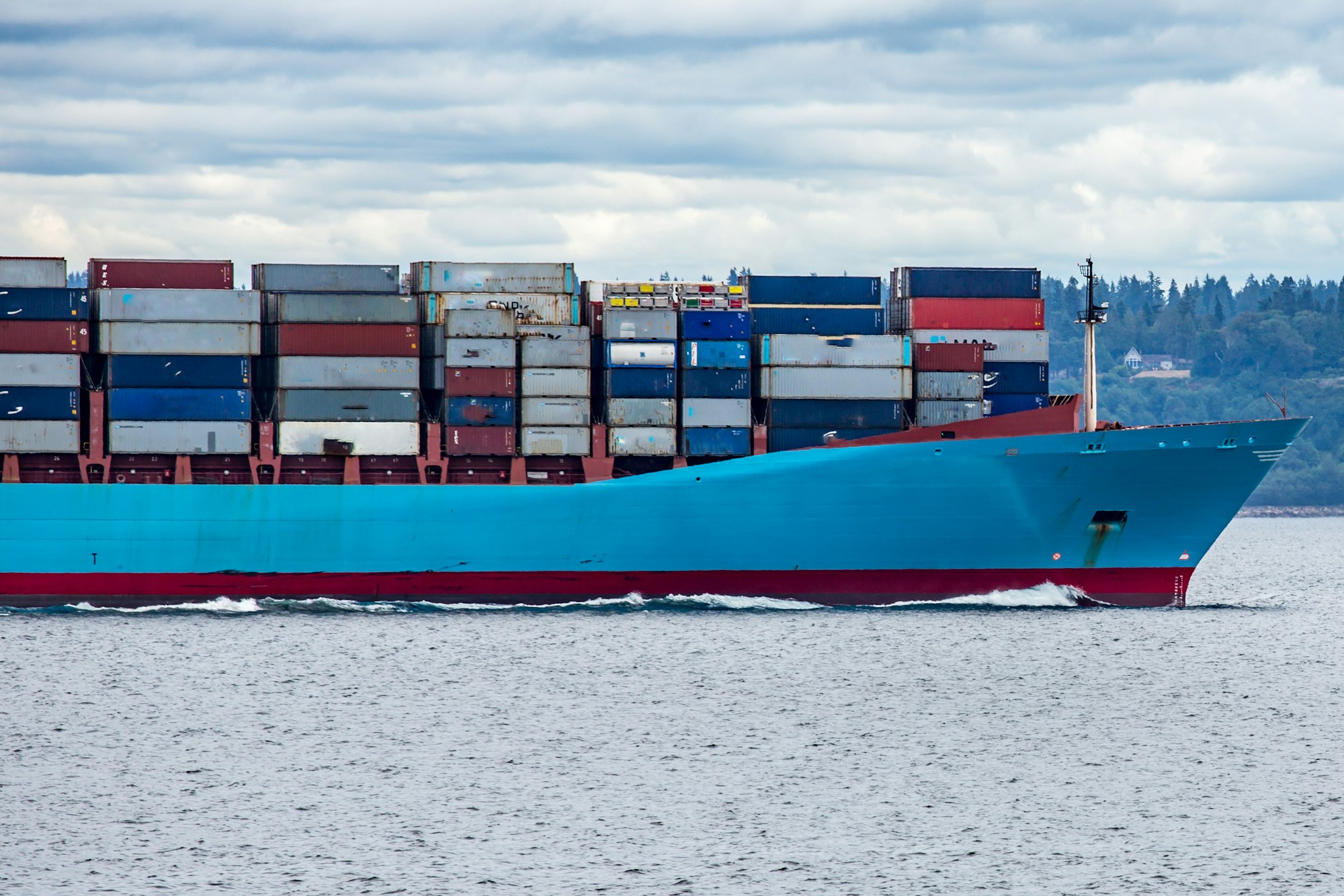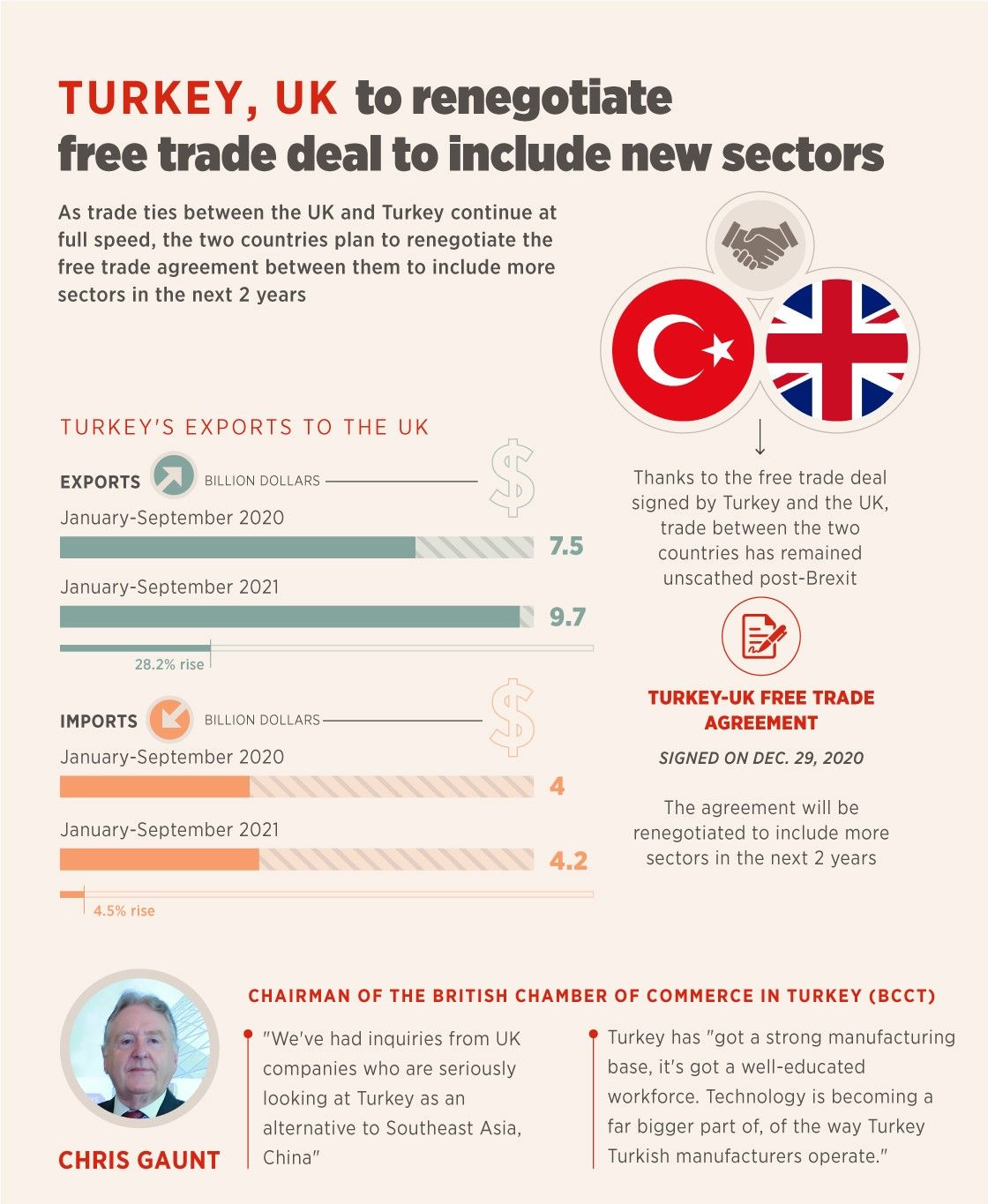Free Trade Agreement will cover more sectors

The UK officially quit the EU after 47 years of membership on Jan. 31, 2020, as the 27 members of the bloc approved the Brexit deal on Nov. 25, 2018. On Dec. 24, 2020, the UK reached a post-Brexit trade agreement with the EU in a bid to prevent commercial losses after the divorce. A few days later Dec. 29, 2020, the country signed a notable free trade agreement with Turkey.
Turkish President Erdogan has called it "the most important treaty for Turkey since the customs agreement with the EU in 1995.". While the trade ties between the UK and Turkey continue at full speed, the landmark free trade agreement is planned to be renegotiated to include more business fields in the next two years.
At the UN summit in September 2021, Erdogan had a meeting with British Prime Minister Boris Johnson at the recently opened Turkish House in New York. Officers from both sides say it was a "very good meeting", and that the two countries are "closely allied strategic partners." and plan to work together more closely on trade, but with a particular focus on defence.
After Germany, Britain is Turkey's second largest export market. "Turkey now has the opportunity to build a new partnership with the United Kingdom and it must make the most of it," says economist Ali Kücükcolak from the Istanbul Commerce University.
President Erdogan is well aware of this, as Turkey is in desperate need of an economic boost. Official inflation currently stands at around 39%, and the currency's value is consistently falling. Turks are feeling the impact on their daily lives: food and rent are becoming increasingly expensive, while salaries remain unchanged.
According to the Turkish Statistical Institute, Turkey's exports to the UK rose by 28% year-on-year to $9.7 billion in January-September, while its imports from the country increased by 4.5% to $4.2 billion in the same period.

Brexit has not affected the UK’s trade relations with Turkey thanks to the FTA, Chris Gaunt, chairman of the British Chamber of Commerce in Turkey (BCCT), told Anadolu Agency. He pointed out that the FTA has a clause to enhance and improve the free trade agreements. "So there's the opportunity within the next two years to renegotiate the free trade agreements between Turkey and UK to include more sectors and give more opportunity for both Turkish companies and UK companies." Agriculture, pharmaceuticals, technology, and financial services are areas that offer great potential for both countries, he said.
The technology sector in Turkey is growing very quickly, he underlined, adding: "It is becoming a major force within Europe. So the potential for Turkey and UK to grow their trade is still very big. And we want to create an environment whereby we can realize that potential over and above what we currently have."
Despite the COVID-19 pandemic’s impact on bilateral trade, Gaunt said there is no lack of appetite to boost the trade volume.
"The UK is Turkey's second largest export market. Hopefully in the future UK will be Turkey's biggest export market," he said. Responding to a question on some global companies shifting their production centers to Turkey, Gaunt said Turkey offers a great opportunity and alternative for the Far East, particularly for China.
"Having something closer with shorter lead times and more flexibility, obviously, is attracting a lot of attention for UK companies, and Turkey as all the attributes, it takes us ticks all the boxes, you know, it's got a strong manufacturing base, it's got a well-educated workforce. Technology is becoming a far bigger part of the way Turkey, Turkish manufacturers operate," he said. Moreover, thanks to the FTA and with its know-how in production, supply and highly-qualified experts in the automotive industry, Turkey is interested in supporting automotive producing countries more strongly as of 2022, particularly England.
Dominick Chilcott, UK ambassador to Turkey, said there was “a very bright future” for the two countries. The trade ministers of the two countries will meet in the next six to eight months to start the renegotiation process of the FTA in order to include more areas of commerce, all of which may be benefited from tariff-free trading.
The content of this article is intended to provide a general guide to the subject matter. Specialist advice should be sought about your specific circumstances.
